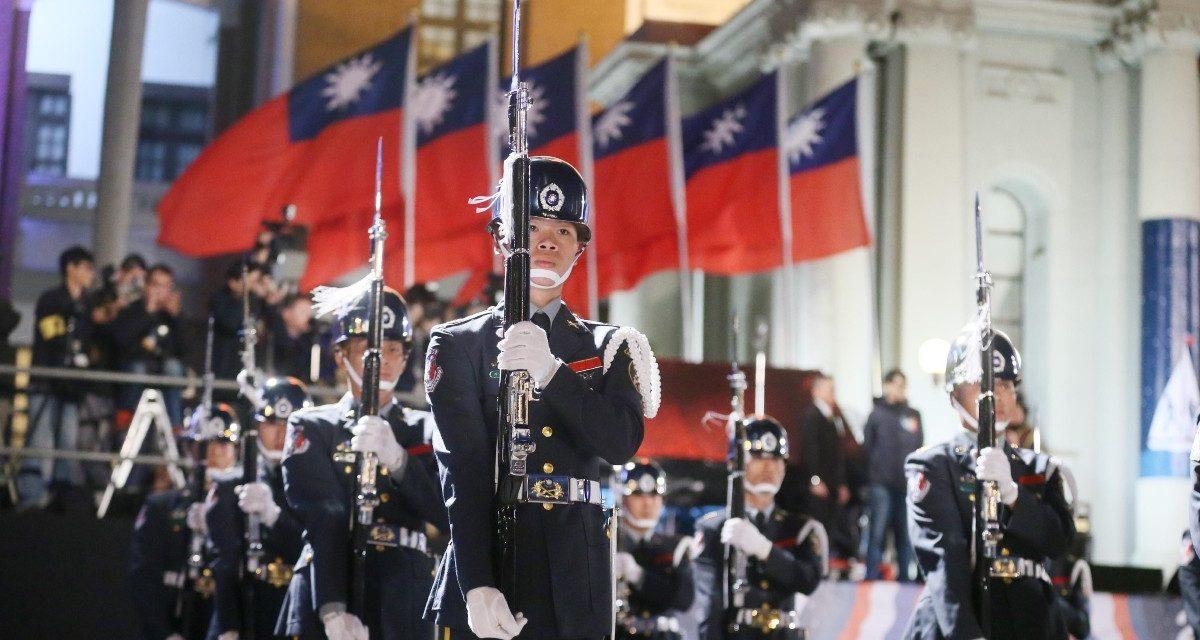Editor’s note: Welcome to another installment of our weekly War Books series! The premise is simple and straightforward. We ask an expert on a particular topic to recommend five books on that topic and tell us what sets each one apart. War Books is a resource for MWI readers who want to learn more about important subjects related to modern war and are looking for books to add to their reading lists.
We asked Brian C. Chao to to contribute this week’s edition of War Books. An MWI research fellow and assistant professor in the National Security Affairs Department at the US Naval War College, we gave him the following prompt: What five books would you recommend for readers to better understand Taiwan and its strategic setting?
The Taiwan question has been a concern for the United States for more than seventy years, though it seems to have grown more urgent recently. Yet the question of Taiwan’s political status has even deeper roots, and the island’s clear, natural borders belie a messy cauldron of clashing identities, loyalties, perspectives, and priorities. What has the United States gotten itself into? How did the divide across the Taiwan Strait emerge, and what sustains it today?
The following five readings offer both clarity and context to these questions and more, collectively providing readers with a holistic understanding of the issue that is widely presumed to be the most likely trigger for war between the world’s two most powerful countries. These five works are listed in the suggested order of reading. I have chosen five readings that collectively cover a wide swath of history and perspectives. This necessarily means that other great works have been omitted, not due to personal dislike, but due to my desire to minimize, rather than emphasize, temporal and topical overlap.
Why Taiwan Matters: Small Island, Global Powerhouse, by Shelley Rigger
Rigger is a leading expert on Taiwan, and this book offers an excellent overview and introduction to contemporary Taiwan and cross–Taiwan Strait relations. She traces the main themes of Taiwan’s development since it became a de facto autonomous political entity in 1949, covering economic development, culture and society, international relations, and, of course, the relationship with Beijing. First published in 2011, an updated version was released in 2014.
Why Taiwan? Geostrategic Rationales for China’s Territorial Integrity, by Alan M. Wachman
The late Wachman tackles an obvious question that is perhaps taken for granted: Why is Taiwan so valued by China? By examining the historical record and highlighting the debates that have taken place over decades, Wachman argues forcefully for Taiwan’s perceived value in the eyes of a Chinese government as having primarily been geostrategic: Taiwan is key to ensuring the national security of the Chinese political state based on the Asian landmass. Wachman’s argument offers a different perspective from the usual rationales, which tend to draw on culture, ethnicity, and interpretations of history, while downplaying the more realpolitik considerations of controlling the island.
Taiwan’s Imagined Geography: Chinese Colonial Travel Writing and Pictures, 1683–1895, by Emma Jinhua Teng
Have mainland Chinese always thought of Taiwan as being part of their political entity? Teng’s thorough book documents how, over the centuries, an island like Taiwan—of which most Chinese had never even heard of—gradually came to be seen as Chinese. From the first establishment of Chinese political authority in the seventeenth century, Teng uses the genre of travel writing to trace Taiwan’s political and cultural incorporation into the Qing domain, and how the Qing court at Beijing transformed the traditional definition of China and Chineseness into something both spatially and mentally more inclusive.
The Great Exodus from China: Trauma, Memory, and Identity in Modern Taiwan, by Dominic Meng-Hsuan Yang
Yang’s book considers a pivotal but understudied event that has indelibly shaped contemporary Taiwan and the island’s internal contestation over identity: the mass migration of mainlanders to Taiwan in the wake of the Communist Party of China’s civil war victory in 1949. Yang considers the trauma of their forced exile from their mainland homes; their adaptations to a new life in a new land, with the hope of returning to the mainland fading with the years; and the enduring legacy of these refugees’ search for identity on Taiwan’s lively domestic political scene now.
A One-China Policy Primer, by Richard C. Bush
This short, clear, eminently readable publication from the Brookings Institution explains what the US “One China” policy is, how it has evolved over the years, and, just as importantly, what it is not. Written by a longtime observer of Taiwan and foreign policy practitioner, this paper is an essential reference for those needing clarification on the sometimes arcane nuances of Washington’s perspective on and relationship with Taipei.
Brian C. Chao is an assistant professor in the Naval War College’s National Security Affairs Department and a nonresident associate of the University of Pennsylvania’s Center for the Study of Contemporary China. He studies China and cross–Taiwan Strait relations, naval power and geostrategy, and US defense and foreign policy in the Asia-Pacific. More information can be found at his website and on Twitter.
The views expressed are those of the author and do not reflect the official position of the United States Military Academy, Naval War College, Department of the Army, Department of the Navy, or Department of Defense.
Image credit: Office of the President, Republic of China (Taiwan)

